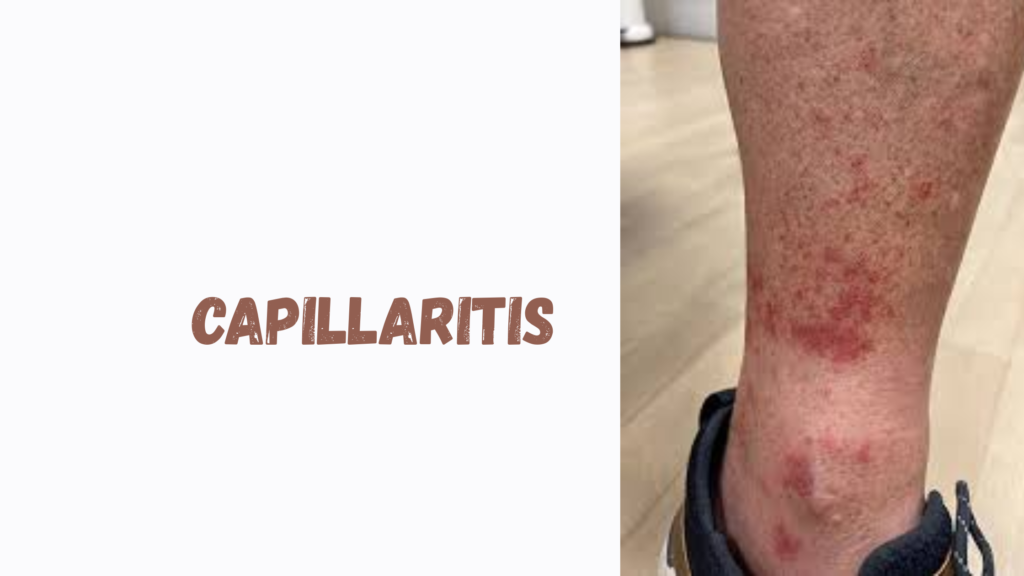Capillaritis, also known as pigmented purpuric dermatosis (PPD), is a benign skin condition characterized by leaky capillaries that cause tiny reddish-brown spots (petechiae) to appear, mostly on the lower legs. It’s not dangerous, but it can be persistent and sometimes cosmetically bothersome.
🔍 What Happens in Capillaritis?
- Small blood vessels (capillaries) in the skin become inflamed or fragile.
- This leads to minor leakage of red blood cells into surrounding tissues.
- The body breaks down the red blood cells, leaving brownish stains (from iron deposits).
📌 Common Features
- Tiny reddish-brown or rust-colored spots, often in clusters
- Usually appears on lower legs, ankles, or feet
- May be itchy, though often asymptomatic
- Can come and go over time
- No ulcers, swelling, or pain (which helps differentiate it from more serious vascular issues)
🧪 Types of Capillaritis (PPD Subtypes)
- Schamberg’s Disease – most common; “cayenne pepper” spots
- Majocchi’s Disease – annular (ring-shaped) patches
- Gougerot-Blum – lichenoid papules
- Lichen aureus – single golden patch
- Eczematoid purpura – with eczema-like features
🔬 Causes and Triggers
Often unknown, but potential triggers include:
- Prolonged standing or walking
- Heat or tight clothing
- Certain medications (e.g., NSAIDs, aspirin)
- Exercise
- Mild trauma or pressure to the skin
- Rarely associated with underlying systemic illness
✅ Diagnosis
- Usually diagnosed by clinical exam
- Skin biopsy may be done to confirm if uncertain
- Important to rule out serious causes of petechiae (like clotting disorders)
💊 Treatment
There is no definitive cure, but management focuses on reducing triggers and improving appearance:
Conservative:
- Avoid prolonged standing
- Elevate legs
- Wear compression stockings
- Gentle skincare; avoid irritating products
Topical:
- Mild topical corticosteroids (to reduce inflammation if itchy)
- Moisturizers to soothe skin
Medications (in some persistent cases):
- Vitamin C and Rutin (support capillary strength)
- Pentoxifylline or colchicine (rare, off-label use)
- Phototherapy (for extensive cases)
🛡️ Prognosis
- Harmless and usually does not progress
- Can persist for months or years
- Often recurs intermittently
